A new position paper outlining U.S. presidential candidate Hillary Clinton's "Initiative on Technology & Innovation" broadly addresses a wide range of subjects, but in particular aligns with Apple's position on encryption and privacy championed by its chief executive, Tim Cook.
"The false choice between privacy interests and keeping Americans safe"
One of the five key parts of Clinton's Tech & Innovation Agenda is labeled "Setting Rules Of The Road To Promote Innovation While Protecting Privacy." Clinton's policies outlined under the heading "Protect Online Privacy as well as Security" reads as if they were ghost written by Cook for Apple's ideal America.
Clinton's policies outlined under the heading "Protect Online Privacy as well as Security" reads as if they were ghost written by Cook for Apple's ideal America.
"Hillary rejects the false choice between privacy interests and keeping Americans safe," it states, echoing virtually identical language Cook used to defend Apple against attacks on encryption and government backdoors by America's Federal Bureau of Investigations, as well as parallel efforts in the U.K. and multiple efforts by The People's Republic of China to demand Apple's code for population surveillance purposes.
While resisting the FBI's efforts to demand via the courts that Apple develop and deliver new "govtOS" software to facilitate efforts by law enforcement to routinely break iPhone encryption on suspects' devices, Cook has suggested that the issue be addressed by elected representatives.
Clinton's position reflects Apple's, stating that Clinton "was a proponent of the USA Freedom Act, and she supports Senator Mark Warner and Representative Mike McCaul's idea for a national commission on digital security and encryption. This commission will work with the technology and public safety communities to address the needs of law enforcement, protect the privacy and security of all Americans that use technology, assess how innovation might point to new policy approaches, and advance our larger national security and global competitiveness interests."
Earlier this year, Apple posted a public 'customer letter' addressing its position, noting that "the best way forward would be for the government to withdraw its demands under the All Writs Act and, as some in Congress have proposed, form a commission or other panel of experts on intelligence, technology, and civil liberties to discuss the implications for law enforcement, national security, privacy, and personal freedoms. Apple would gladly participate in such an effort."
Backdoors and encryption bans don't work
In February, a study by Harvard University's Berkman Center for Internet and Society outlined that encryptions bans and backdoors simply wouldn't work, noting reasons why U.S. laws to weaken domestic encryption wouldn't stop malicious users from obtaining foreign encryption, but would put U.S. firms at a competitive disadvantage.
A week later, Clinton's rival candidate Donald Trump energized crowds with the idea of boycotting Apple until it agreed to open backdoors or produce new software under government duress for the FBI, although Trump himself continued using his iPhone and was even revealed to have more than $1 million invested in Apple at the time.
Apple was subsequently reported to have refused to provide financial and technological support for Trump's Republican presidential convention, although the reported reason was the candidate's comments on minorities, women, and immigrants rather than his threats against privacy and encryption or even his insistence that Apple should move its manufacturing to the U.S., without regard for how that could even be possible.
Data privacy
Clinton's tech agenda also touches on other subjects of core interest to Apple, including corporate surveillance practices involved with "commercial data privacy," an issue Apple has led mostly on its own as Google, Facebook and others have embraced mass data collection with little regard for user privacy.
"Hillary believes advances in computing like the rise of big data and the Internet of Things will yield transformative benefits to people," the agenda notes.
"But this future raises important questions about privacy and fairness. Her policy approach to privacy will affirm strong consumer protection values through effective regulatory enforcement in an adaptive manner, encouraging high standards in industry without stifling innovation." None of us should accept that the government or a company or anybody should have access to all of our private information. This is a basic human right - Apple's Cook
That echoes Cooks' own comments on mass surveillance in government or corporate consumer data sharing.
In February, he noted in an interview that "None of us should accept that the government or a company or anybody should have access to all of our private information. This is a basic human right.
"We all have a right to privacy. We shouldn't give it up. We shouldn't give in to scare-mongering or to people who fundamentally don't understand the details."
Patent trolls
Addressing "effective copyright policy," the Clinton tech agenda notes that "the copyright system has languished for many decades, and is in need of administrative reform to maximize its benefits in the digital age."
Related issues involve the reduction of "excessive patent litigation," an issue of primary concern for Apple. Clinton addressed the "costly and abusive litigation," noting that she "supports laws to curb forum shopping and ensure that patent litigants have a nexus to the venue in which they are suing; require that specific allegations be made in demand letters and pleadings; and increase transparency in ownership by making patent litigants disclose the real party in interest."
Clinton also called for "faster review of patent applications," and the earmarked use of patent fees to invest in the "tools and resources [the U.S. Patent and Trademark Office] needs to act expeditiously on patent applications and ensure that only valid patents are issued."
For years, Cook has publicly maintained that America's USPTO is in dire need of reform, noting specifically in a 2012 interview with All Things D host Walt Mossberg that the system for enforcing standards-essential patents is "broken" and that patent disputes with other companies are a "pain in the ass" that he wishes didn't exist.
Patent trolls seeking favorable jurisdictions— particularly in East Texas, where the economy revolves around liberal patent litigation— have been a continuing problem for Apple and other technology leaders.
Investing in STEM education
The first item outlined by Clinton's plan, titled "Building The Tech Economy On Main Street," addresses investment in Computer Science and STEM (Science, Technology, Engineering and Mathematics) education. Rather than advocating the transfer of assembly line jobs from China to the U.S., Clinton noted that "new technologies are already transforming our economy, and they have the power to generate trillions in economic output."
Clinton specifically outlined plans to "Provide Every Student in America an Opportunity to Learn Computer Science," and to "Engage the Private Sector and Nonprofits to Train up to 50,000 Computer Science Teachers in the Next Decade."
Those goals align closely with Apple's efforts in education, and in particular its initiatives to and interest in making tools available to teach app development, including the newly announced, free Swift Playgrounds app for iPad.
Investing in Entrepreneurial activity
Clinton also addressed efforts aimed to "Reboot Job Training Around Industry Needs and Job Credentials," and to "Diversify the Tech Workforce" by removing barriers to "full and equal participation by all groups in the 21st century economy," another issue Apple has devoted significant efforts toward.
The plan also highlights efforts to "Build Local Tech-Driven Economies by Investing in Entrepreneurs and Small Businesses," and introduces an initiative to "Defer Student Loans to Help Young Entrepreneurs."
It noted that "a smaller proportion of millennials today are starting new ventures as compared to their predecessors. This is not for a lack of desire— more than half of America's millennials say they want to start a business— but barriers like student debt and a lack of access to credit are holding young people back."
Clinton outlined a plan to defer student loans (no interest and payments) for up to 3 years "as they work through the critical start-up phase of new enterprises."
Additionally, "for young innovators who decide to launch either new businesses that operate in distressed communities, or social enterprises that provide measurable social impact and benefit, she will offer forgiveness of up to $17,500 of their student loans after five years."
Under Cook, Apple has increasingly made expanded STEM education and diversity public issues, particularly emphasizing these initiatives at the company's annual meetings with stockholders.
In 2014, Apple introduced a $100 million pledge to support the Obama Administration's ConnectED initiative, tasked with enhancing learning and opportunities in disadvantaged schools.
Expand talent immigration visas
Also addressed are plans to "Attract and Retain the Top Talent from Around the World," noting that "far too often, we require talented persons from other countries who are trained in U.S. universities to return home, rather than stay in here and continue to contribute to our economy.""Far too often, we require talented persons from other countries who are trained in U.S. universities to return home, rather than stay in here and continue to contribute to our economy" - Hillary Clinton
Clinton proposed a "comprehensive immigration solution" which would include automatically attaching "a green card to STEM masters and PhDs from accredited institutions— enabling international students who complete degrees in these fields to move to green card status.
The plan also supports start-up visas that would "allow top entrepreneurs from abroad to come to the United States, build companies in technology-oriented globally traded sectors, and create more jobs and opportunities for American workers.
"Immigrant entrepreneurs would have to obtain a commitment of financial support from U.S. investors before obtaining the visa, and would have to create a certain number of jobs and reach performance benchmarks in order to pursue a green card."
The Digital Divide and Open Internet Abroad
Two other key areas of interest to Apple— domestic access to broadband Internet and an internationally open Internet— were also addressed by Clinton's tach platform. In addition to facing censorship issues in countries like China, Apple is also coping with new laws demanding that all citizen data remain local, effectively a demand that Apple build data centers in every country it does business.
The Clinton agenda addresses expanding access to fixed broadband, particularly in rural areas, and says Clinton will "take action to help America widely deploy 5G technology— the next generation wireless service that will not only bring faster internet connections to underserved areas, but will enable the Internet of Things and a host of transformative technologies."
Outside the U.S., Clinton noted that as Secretary of State, "she boldly chose to elevate Internet Freedom to the top levels of American foreign policy and crystallized the issue in the international community as a contest between the values of open and closed societies."
Clinton "will continue this work as President-fighting for Internet Freedom and insisting on the responsibility of all nations to respect free speech and human rights online, as well as the open flow of data across borders and access to digital markets. She will oppose efforts to block or degrade internet access or to shutdown social media, and she will stand with likeminded countries against efforts by countries like China or Russia to create a balkanized internet run by governments."
Quicker approval of medical device innovation for HealthKit and Apple Watch
Another issue of interest to Apple, related to the lengthy approval process for media devices, could potentially improve the company's ability to innovate in the realm of HealthKit, Apple Watch and new initiatives including ResearchKit and CareKit.
Clinton said she would "Appoint a Chief Innovation Advisor to Reduce Federal Regulatory Barriers," writing that she "will make the reduction of regulatory barriers to developing new products and services a top priority of the Office of Management and Budget's Office of Information and Regulatory Affairs by appointing a Chief Innovation Advisor to that office.
"This Chief Innovation Advisor would spearhead reforms across the government such as that spurred by the bipartisan FDA Safety and Innovation Act, which created a pathway for the quicker approval of medical device innovations to catalyze technological development."
In May, Cook emphasized emerging health products as critically important to Apple at Startup Fest Europe in Amsterdam, where he stated, "the holy grail of [Apple Watch] is being able to monitor more and more of what's going on in your body.
"If you could have a device that knew so much about you, it would be incredible, and would extend life and extend quality," adding that that "health is a huge issue around the world" and "ripe for simplicity and a new view."
Net Neutrality and Apple TV
Writing in staunch support for Net Neutrality, Clinton wrote that "the open internet is not only essential for consumer choice and civic empowerment - it is a cornerstone of start-up innovation and creative disruption in technology markets."
Clinton supports the FCC's efforts to designate internet service providers as common carriers under Title II of the Communications Act, which seeks to "ban broadband discrimination, prohibit pay-for-play favoritism, and establish oversight of 'interconnection' relationships between providers."
Clinton also noted her "opposition to policies that unnecessarily restrict the free flow of data online-such as the high profile fight over the Stop Online Piracy Act (SOPA)."
Apple stands to benefit from policies that favor open broadband and enable users to pick their own cable box rather than being forced to buy or rent from their cable provider.
Further progress in that realm could open options for Apple TV to become the front end for how users access television and streaming video content.
One more thing: Apple Car?
Another tantalizing aspect of Clinton's tech platform for Apple includes mention of efforts intended to "challenge state and local governments to identify, review, and reform legal and regulatory obligations that protect legacy incumbents against new innovators."
Specifically, that includes "state regulations governing automotive dealers that stifle innovation and restrict market access," a reference to the patchwork of local laws that protect established car makers while effectively preventing new companies— including Tesla, and likely Apple in the future— from selling vehicles directly to customers without an established network of independent dealers.
The section also addresses "local rules governing utility-pole access that restrain additional fiber and small cell broadband deployment."
Trump doesn't mention technology among his positions
On his own positions page, Trump makes no mention of any substantial ideas even slightly related to technology, innovation, privacy, intellectual property or even education.
Instead, it only mentions plans to "compel Mexico to pay for the wall," complains about health care reform, offers protectionist policy regarding U.S. manufacturing, claims Trump would "fix— fast" issues related to Veterans Affairs, outlines a plan to greatly simplify income taxes, reiterates an immigration policy centered around a "southern border wall" and finishes with a section on gun rights.
Apart from calling for a boycott of Apple and announcing plans to somehow force the company to move its manufacturing, Trump has also threatened Jeff Bezos' Amazon and The Washington Post he owns, stating "if I become president, oh do they have problems. They're going to have such problems.""Look at the comments he's made about women, about Muslims, about reporters, it's just repugnant." — HP CEO Meg Whitman
Even many prominent Republicans have taken a public stand against Trump, particularly those in the tech industry. In March, HP's chief executive Meg Whitman told CNBC "I won't be voting for Donald Trump. Look at the comments he's made about women, about Muslims, about reporters, it's just repugnant."
Whitman added, "my belief is if the American people could really understand his record, understand who he is, understand his business track record, which is not strong, we would not nominate Donald Trump."
She also stated that "his plan to put on a 35 percent tariff on goods imported would sink this company into a recession. It would penalize global companies that are trying to be competitive globally."
 Daniel Eran Dilger
Daniel Eran Dilger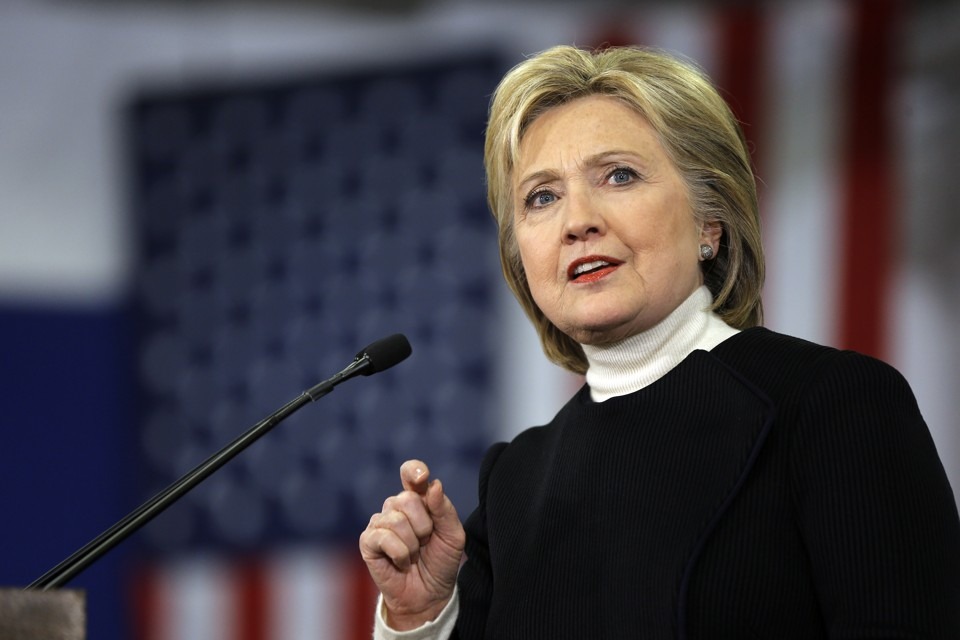
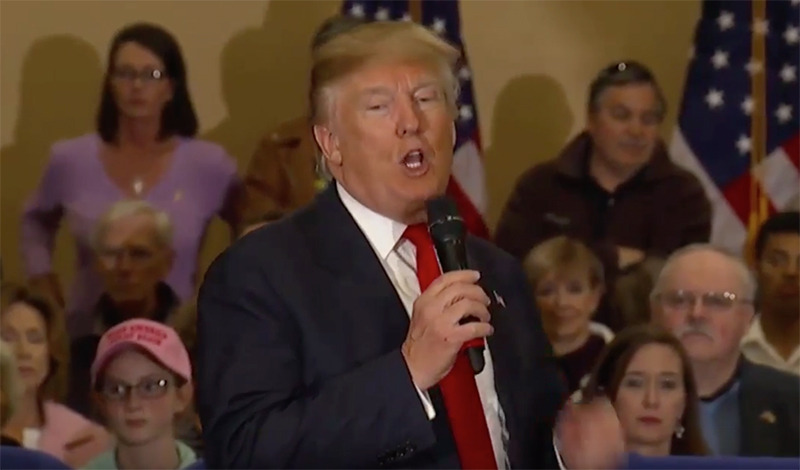
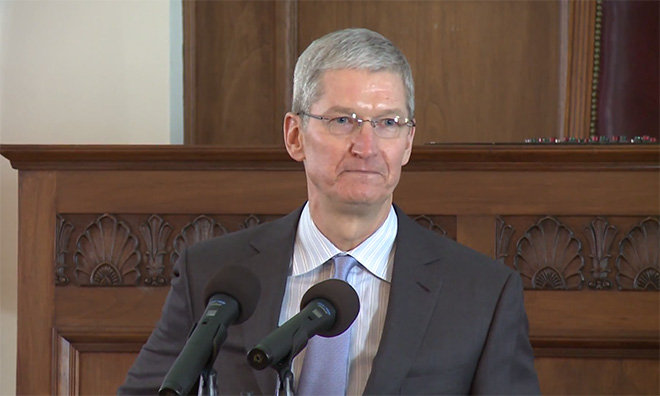
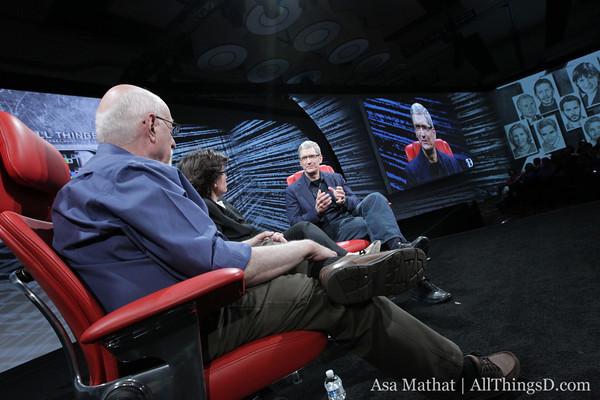
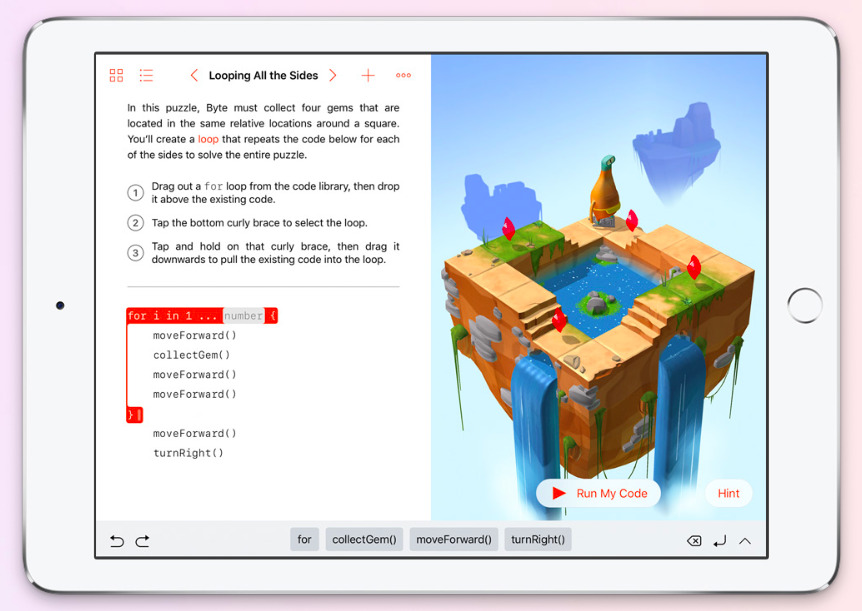
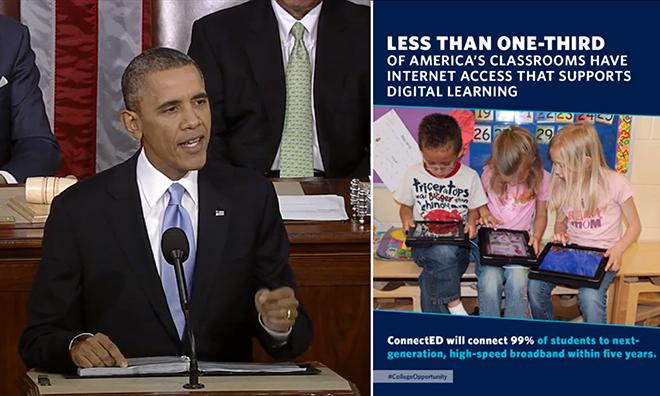
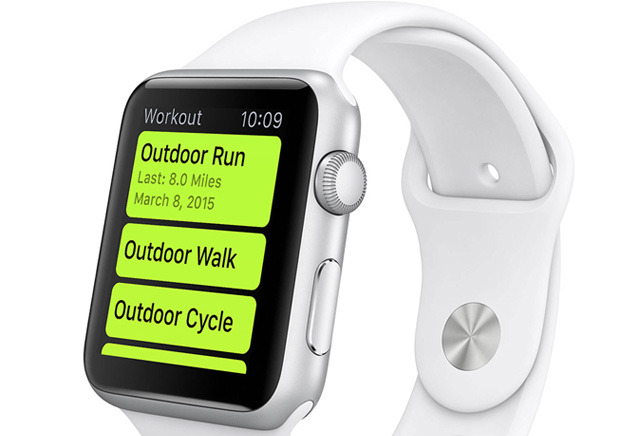
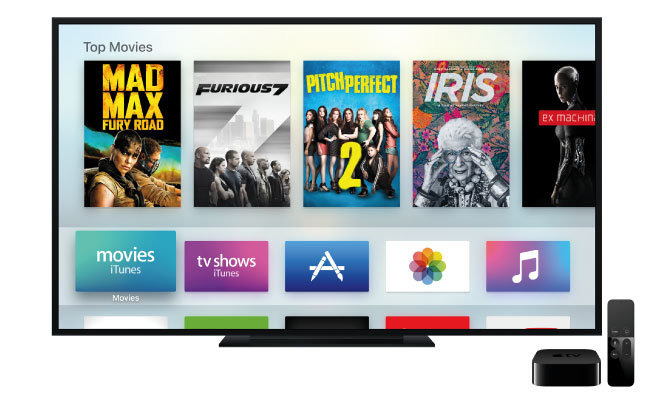







-m.jpg)






 Malcolm Owen
Malcolm Owen

 William Gallagher
William Gallagher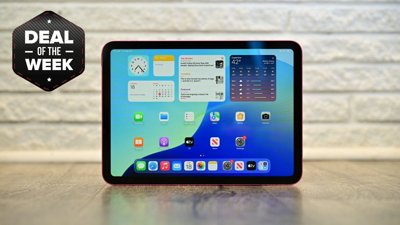
 Christine McKee
Christine McKee
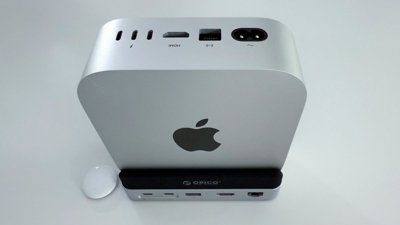
 Mike Wuerthele
Mike Wuerthele
 Andrew Orr
Andrew Orr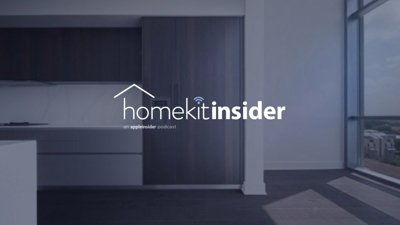
 Andrew O'Hara
Andrew O'Hara




-m.jpg)



33 Comments
The problem with Clinton is you can't trust here any further than you can kick her. Considering how far the current administration has gone in trying to curtail our rights and her involvement I wouldn't vote for her for anything. She isn't fit to lead a pack of Girl Scouts.
Don't believe any of this.
I'm, so glad AI has posted this article. I'm sure it will turn around all the Trump Lumps who inhabit these forums, and turn them into Clinton supporters.
yay. o:)
Hmmm. Well blow me down. I guess we'll see if that lasts.